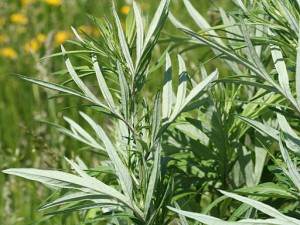
 3
3






 6
6




 1
1




 mystifying neighbors is ALWAYS a top priority of mine.
mystifying neighbors is ALWAYS a top priority of mine. 
 1
1




 1
1




Together is our favorite place to be













 1
1




![Filename: Yangshuo-delicacy-mugwort-cakes-1.jpg
Description: Mugwort Cake [Thumbnail for Yangshuo-delicacy-mugwort-cakes-1.jpg]](/t/50613/a/32955/Yangshuo-delicacy-mugwort-cakes-1.jpg)
"Instead of Pay It Forward I prefer Plant It Forward" ~Howard Story / "God has cared for these trees, saved them from drought, disease, avalanches, and a thousand tempests and floods. But he cannot save them from fools." ~John Muir
My Project Page




Designer, herbalist, hiker in Hurley, NY, USA. Zone 6. They/them.




 Wormwood infused into stronger alcohol makes a crude absinth which can be improved by a second distillation. It contains thujone, a narcotic chemical which has been compared to marijuana. The use of wormwood in alcoholic drinks seems to me to be similar to the use of hops, which are a close cousin of marijuana (and I don't think it's coincidence that it's the fragrant female flowers of hops which are used! smell some freshly picked hops and you'll know what I mean). The main reason for hops in beer is their anti bacterial properties, which make the beer last longer, but they also seem to be sedative.
Wormwood infused into stronger alcohol makes a crude absinth which can be improved by a second distillation. It contains thujone, a narcotic chemical which has been compared to marijuana. The use of wormwood in alcoholic drinks seems to me to be similar to the use of hops, which are a close cousin of marijuana (and I don't think it's coincidence that it's the fragrant female flowers of hops which are used! smell some freshly picked hops and you'll know what I mean). The main reason for hops in beer is their anti bacterial properties, which make the beer last longer, but they also seem to be sedative.













Peter Ingot wrote:
As regards the wormwood cakes, Glebionis segetum (corn marigold or corn daisy) is often eaten in the far east, and its Korean name is regularly mistranslated as "mugwort". I suspect this may be what is in the mugwort cakes, but I could be wrong. It is only mildly bitter.
"Instead of Pay It Forward I prefer Plant It Forward" ~Howard Story / "God has cared for these trees, saved them from drought, disease, avalanches, and a thousand tempests and floods. But he cannot save them from fools." ~John Muir
My Project Page
 1
1








we have to forest our farms and farm our forests



















“Knowledge is knowing a tomato is a fruit: Wisdom is not putting it in a fruit salad. “ Brian Gerald O’Driscoll




 1
1





 1
1




You do not have to be good. You do not have to walk on your knees for a hundred miles through the desert repenting. You only have to let the soft animal of your body love what it loves. -Mary Oliver
 3
3




One can never be too kind to oneself or others.
 2
2




The first question for any human habitation is, "Where does the water come from?"
It is said that there is no such thing as "waste," just misplaced resources. - Art Ludwig /// www.permacultureman.com
 3
3




Nikolaj Vinicoff wrote:I have some experience with mugwort / artemisia in West Africa during the rainy season when malaria is a risk (especially for us who has never had it before). We would commonly boil leaves of different trees and then drink the infusion; I was told that the mugwort tea would prevent us from getting malaria, and sure enough none of us got it. Whether this was a stroke of luck or the tea working, I do not know - I choose to believe the tea worked, though.
Together is our favorite place to be

|
Story like this gets better after being told a few times. Or maybe it's just a tiny ad:
Our PIE page has been updated, anybody wanna test?
https://permies.com/t/369340/PIE-page-updated-wanna-test
|



